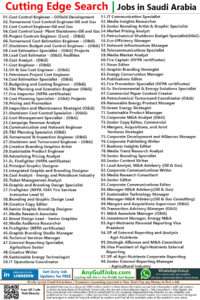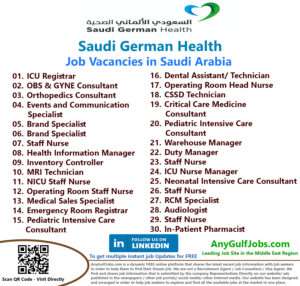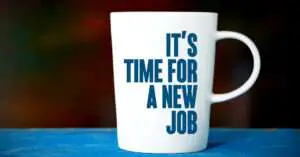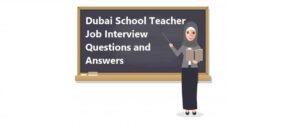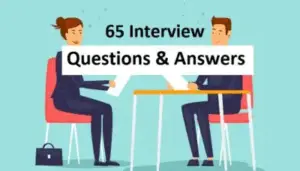Guide to Fresh Graduates Maintaining Mental Health During the Job Search.
Under the influence of the new crown pneumonia epidemic, the studies and work of graduates have been affected to a certain extent. Some students worry about their graduation thesis (design), some worry that they cannot find a job, and some worry that they will be unemployed after graduation. The 2020 graduation season has therefore become bumpier, with ups and downs, and ups and downs. In order to solve the dilemma faced by college students from the psychological level, the Mental Health Education Center specially compiled a psychological adjustment guide, hoping to give some help and warmth to the majority of 2020 graduates.
Question 1: The school start time is delayed. My graduation project and graduation dissertation have not been completed due to delay. Can I graduate on time? What should I do?
Guide: Affected by the epidemic, for graduates, I think everyone has concerns. This is not a problem you have to face alone. I think the Ministry of Education, Education Commission, schools and other relevant departments will definitely find the best, However, as far as the current situation is concerned, everyone is in the same situation and the starting line is the same, so when a problem becomes a universal problem, it is no longer a problem.
However, in the face of their own procrastination, many students could not calm down. On the one hand, they could not work hard, and on the other hand, they would regret their procrastination. What should I do?
1. Appropriately accept your own procrastination
The phenomenon of procrastination is widespread in daily life. The survey shows that the absolute majority of people will encounter it more or less, and the proportion of students, especially college students, is higher. According to a survey, about 75% of college students think they have procrastinated, and 50% think they have been procrastinating. For most graduates, a graduation thesis is by no means a relaxed feeling. When people encounter complex tasks or things they don’t like to do, they will naturally procrastinate. However, procrastination does not completely bring about adverse effects. Many times we also have this experience. After a temporary delay, it sometimes helps us to have sudden inspiration or insights about the task we are facing, and then it will be completed more efficiently. Task. Therefore, to a certain extent, you can accept your own procrastination.
2. Adjust your schedule and give the paper a limited time every day
Procrastination is often related to some incentives in the environment. For example, when the epidemic situation is at home, work and rest are irregular, and some students often scan the epidemic information at two or three o’clock at night. If you can’t sleep at night, you will get up late during the day, and your energy is not good. Many things will have to be delayed, so it’s important to adjust your work and rest habits. Writing a graduation thesis is a task with a fixed deadline, so I have a time requirement for myself every day. The first day can be two hours or three hours of writing. After gradually adapting to adjustments, I will invest more time and be relatively fixed. Maintaining a good rhythm of life during the stay at home and combining work and rest are conducive to physical and mental health.
3. Cut off the interference and stay focused
Living at home has increased the dependence of many students on mobile phones. Those constantly popping up Weibo, WeChat, Taobao, etc., ruthlessly tore your time to pieces. If you want to concentrate on doing things, it is necessary to make a “break” with these interference sources! When writing a thesis, you must not look at your mobile phone, keep yourself in a focused state, and check your mobile phone information after completing your small goals at the time.
4. Give up perfectionism
Studies have shown that there is a certain correlation between perfectionist tendencies and procrastination. Perfectionism can be divided into positive perfectionism and negative perfectionism. Positive perfectionists will actively find ways to complete learning tasks to achieve the desired results, while passive perfectionists will use procrastination to avoid failure. Some students have been so late because they feel that the conditions for writing a paper are not complete, and they are afraid that they are not good enough. From our past experience, it is best to give up “perfectionism” when writing a paper. Persisting in writing something every day is a victory, even if you are not satisfied with the writing, but as long as you write it, it is the result. If it is a big deal, you can modify it. Throw away the burden of “perfection”, bite the bullet and start writing, and you are on the right path.
5. Consciously reward yourself
As long as you insist on writing something every day, no matter how much, you have to give yourself a reward. This reward can be spiritual or material. Don’t underestimate this reward, it is an effective way for you to build self-confidence. Whenever I defeated procrastination, I secretly called my name in my heart and said: Good job!
6. Exercise properly and keep your body and mind in good condition
Due to the current epidemic, we cannot go to crowded places outside to participate in group exercises, but we can do some aerobic exercises at home. There are many apps like KEEP that can be used! Physical and psychological adjustments are in place, which has a positive impact on writing a good graduation thesis.

Question 2: Can I find a satisfactory job for me in this major? What should I do if I don’t like to work in this major? Should I stay in the big city or return to my hometown? I have a staffing job in my hometown, and the city is a contract worker. How do I choose? Too much worry, what should I do?
Guide: In fact, when facing graduation, many students may have the following psychological deviations regarding career choice or employment or continuing their studies:
1. Confused, follow the crowd
The psychological pressure of employment in most universities is mainly because they don’t know what kind of job they should choose. Many students are not clear about their career plans, and some students who have had career plans do not plan comprehensively and systematically. The quality of the plans is very low. . Many students begin to search for various employment information for career planning when they are nearing graduation or facing employment problems, which causes confusion and conformity mentality for college students in employment.
2. Unclear self-awareness
Many students cannot clearly understand their professional competitiveness, strengths and weaknesses when choosing a career. Many students see that their seniors and sisters have found jobs with good salaries. They also look for jobs with good pay but ignore them. In addition to personal interests and majors, it is just blindly following the trend, which is not conducive to personal development. Some students’ employment concepts are also affected by the opinions of parents. When they are employed, they prefer stable and decent careers such as civil servants, institutions, and teachers. The growth environment, family environment, and personal opportunities of college students are all different, so you should know yourself correctly and objectively in career choices.
3. Egoism
Some students admire themselves in the process of choosing a career. They overestimate themselves and have high requirements for employers. They value whether employers can provide development opportunities and good treatment. Such an employment mentality will give them a career choice. Many obstacles have been set up, making their employment options narrower and narrower, and when they encounter difficulties and setbacks in job hunting, they cannot face their own problems squarely. Individuals are different in their own situations. For professional expectations, you should choose the one that suits your own abilities according to your personal situation. Of course, too low professional expectations are not conducive to your own development. Better career development.
4. Inferiority complex
Low self-esteem is a negative self-evaluation. Some students habitually deny themselves by seeing the advantages of others around them, or feel that they are inferior to those who graduated from key and double first-class universities, and adopt an evasive attitude in the face of job hunting; some students are often smug, Expect to show their talents. Once they hit a wall, they will easily develop an inferiority complex, and then underestimate their abilities and value, and lack the courage to continue to recommend themselves.
In fact, there are methods for career planning, as long as we master the methods, each of us can find our own life.
Step 1: a clear understanding of your career positioning
Please take out a piece of paper and work with me to locate it. Career positioning you have to consider the following factors:
A. Professional matching positions
For example You majored in finance and economics, what positions can you have? Urban financial institutions, financial institutions in hometowns and counties, scientific research institutions, universities, government departments, enterprises, civil servants, military enlistment, national and local grassroots projects, other enterprises, entrepreneurship, etc. At the same time, you should have a general understanding of the matching of the abilities required by these positions, as well as the professional environment of these positions, so as to be well aware of it.
2. Personal characteristics
Different personalities are suitable for different jobs. There are mainly several types of personalities, such as bile quality (extroverted emotional instability), blood quality (extroverted emotional stability), mucus (introverted emotional stability), and depression (introverted emotional instability), such as Depressive people are not suitable for work that requires more interpersonal interaction, and bile people are not suitable for quiet experimental work. Obviously, you should have a basic understanding of your personality characteristics. If you don’t understand and don’t know how to match, you can take a few tests (Hollander occupational orientation test, Eysenck personality test) to get it, and students can get it through related websites. test.
3. Choice of career environment
Do you choose to work and live in a big city or choose to live in a small city at the county level? Big cities have a lot of work pressure and many opportunities. If you can find a good job in a big city, you have ideas, aspirations, and are willing to work hard. This is a very good thing. This is also the spirit that young people should have in the development of society.
On the other hand, grassroots employment is also a good choice. At present, the grassroots urgently need all kinds of talents, and each grassroots unit has given many good preferential policies to attract talents. It is a general trend of the country for college graduates to work at the grassroots, and it is also a social trend. The inevitable development. There are some good places to work in the grassroots units back home. Your relatives are around, you will have better development prospects at the grassroots level, you can have more growth opportunities, your living costs and living conditions will be better, medical care Security, social security, housing security and even children’s schooling all have good treatment. Working at the grassroots level will reduce the pressure in life and greatly enhance the happiness of life.
Everyone should choose according to their own actual situation, comprehensively considering factors such as family, individual, environment, development, etc., to make a choice.
4. Long-term career development
Some people think that in the past few years, they can find a job to train themselves, and then make a long-term career choice. This is a good way. It is also the way many young people get employment now. For students who are transitioning from school to society but their goals are not clear, you can exercise yourself first and find your own direction in the tempering. Of course, it will be better if you have a long-term career choice from the beginning, your job search goals will be clearer, and it will be easier to find a job that meets your requirements.
Step 2: How to find a job that matches you
After the above analysis of professional positioning, you basically have your own professional positioning, what should you do next?
Faced with the special difficulties caused by the epidemic to the employment of college graduates, the government, enterprises, institutions, schools and other parties have taken active actions to jointly build a network of employment protection for college graduates. On March 18, the General Office of the State Council issued the “Implementation Opinions on Responding to the Impact of the New Coronary Pneumonia Epidemic and Strengthening Measures to Stabilize Employment”, which specifically made comprehensive arrangements for broadening the employment channels for college graduates. Enterprises and institutions actively fulfil their social responsibilities to stabilize employment, tap employment potential, and expand their talent pool. All kinds of colleges and universities will do better job guidance and service for graduates with greater efforts, and work closely with various recruitment agencies to promote the connection of talent supply and demand. We can actively understand relevant national government policies and plan our career direction in a targeted manner.
Step 3: Is your resume ready?
Many students have not prepared a perfect resume. You must know that a resume is your first need when looking for a job. You are the stepping stone to getting an interview opportunity. During the epidemic, recruitment will be carried out on the Internet. At this time, the role of the resume is only More prominently, what kind of resume do employers prefer? Let me sort it out for everyone.
The resume is the virtual job applicant. Before seeing the job applicant himself, you can get a rough idea of the person’s personal experience through your resume. Therefore, the resume must reflect the following aspects:
1. Basic information. The first step to understand your basic information, including (name, gender, date of birth, hometown, political outlook, academic degree, major, contact number, email address, job search intention and other information), insert you carefully in the upper right corner of the basic information The prepared photo, this photo is also a very important factor, let the employer see your mental outlook through the photo;
2. Academic level. To highlight your professional ability, professional level, knowledge-related skills;
3. Main experience. I think this part is the most important and the part that attracts employers the most, because you can understand your overall quality through your main experience, so you should carefully sort out the main experience since university and write it down one by one. Including student cadre positions held during the university, large-scale events planned or participated in, various school-level and above competitions planned or participated in, social practice activities planned or participated in, voluntary service activities, entrepreneurship or participation in entrepreneurship, The past is very meaningful or few people can accomplish things, etc., which can reflect the information of the overall quality of the individual. I want to emphasize here, not to keep a running account, but to write down what has been done? What did you get? There are two lines for each message. In addition, you must not write too much. 5-8 are the best. They are sorted by importance, highlighting the matching degree with the position. Some people may say that their experience is not particularly rich, then you can start some Start with the details, highlight your own shining points, but don’t fake it.
4. The status of awards. Arranged in order of importance, one by one, if you have won a lot of awards, there should be no more than 8 entries on your resume. It is not recommended that you write a lot of self-evaluation at the end of your resume.
5. One page of resume is best. It is true that a lot of content can be two pages on the front and back. The layout must be clear, concise, clear, and organized. Do not have typos or unclear sentences. The colours should be matched properly. The full text should not be more than 3 colours. At the same time, remember to match the position at any time Adjust the content of your resume, highlight the match between your personal abilities and your position, and prepare a few more versions. The resume can also see your attitude, sense of responsibility, and meticulousness. It can also judge the temperament and connotation of the writer based on the design style, arrangement logic, and vocabulary of the resume. So, hurry up and get started.

Question 3: Affected by the epidemic, many jobs require online interviews. How do you prepare for online interviews?
Guide:
Step 1. Preparation before the interview
1. Comprehensive collection of materials
Prepare in advance the materials that may be used in the interview. It is best to make a list to avoid omissions. Bring all kinds of certificates and certificates, which can not only reflect your sincerity but also facilitate the review of the recruiter. In addition, you should have a strong sense of time, so you can have time to familiarize yourself with the environment, organize your ideas, and make adequate preparations.
2. Understand the job information of the unit
The key to an interview is to prove to the interviewer that you are the right person. This first examines the applicant’s understanding of the employer’s culture and position. Before the interview, applicants should collect as much accurate and true information as possible on the nature of the applicant’s unit, job requirements, talent structure, and unit’s benefits; carefully interpret the job description, which generally contains two parts: recruitment conditions and job responsibilities Content, be aware of it.
3. Appearance and appearance
The general principle of dress preparation is to dress neatly and generously. You can make a little modification. Men can blow their hair neatly and wear light-coloured shirts; girls can wear elegant light makeup, wear as little or no decorations as possible, and the overall clothing colour should not be too much (preferably any more than three). And it must be properly matched. The clothes are free of dirt, oil stains and wrinkles, leaving the interviewer with a natural, generous, and capable impression to show their respect and attention to the interview. If you have an online interview, don’t think that you can only see your upper body in the video interview. Just take care of your upper body and take care of your upper body, while the lower body is matched with pyjamas and slippers. In case you need to look at your overall temperament during the interview or stand up and get one. Things, when the interviewer sees your “different appearance”, your temporary fluke will lead to catastrophe.
4. Develop a self-introduction
At the beginning of the interview, the interviewer generally asks the candidate to make a short self-introduction, which lasts about 3 minutes. The self-introduction before the interview is very important and may determine the success or failure of the entire interview to a large extent. During the introduction, applicants can selectively highlight their educational background, relevant social practice experience, etc. according to the requirements of their job responsibilities. The content is concise and clear. Choose one or two highlights related to the position to describe, and make it clear that they can bring to the unit what. At the same time, be aware of every detail in the resume. It is envisaged that the interviewer may refine the main points in the resume based on the relevant questions raised by the resume content, and be able to deal with it freely in the interview.
5. Active simulation exercises
After determining the content of the self-introduction, you should prepare carefully and memorize it by heart. Applicants can fully experience the interview process through role-playing, find out the shortcomings, and then practice in a targeted manner. Most job seekers are new to online interviews, and many are not confident enough in front of the camera, so they tend to get nervous. Simulation exercises can be carried out in advance. Prepare for work 20 minutes in advance. Job applicants are staring at the camera instead of talking on the screen. The camera should be at the same level or slightly higher than the eyes.
Step 2, the adjustment of the interview behaviour mentality
During the interview, many people will collapse due to excessive nervousness, resulting in incoherent language and incoherent answers during the interview. In the face of such a situation, how should graduates adjust their mentality and show their best selves?
1. Change your mindset to look at the interviewer
Many graduates think that the interviewer is an examiner during the interview, and their own performance affects their judgment of themselves. Therefore, it is very nervous to think about this. In fact, from another perspective, they may be your future colleagues. This is a process of communication between the two parties.
2. Divert attention
Shift your nervousness to the content you want to answer, not how the interviewer evaluates me and what kind of impression you have. In fact, the highest level of answering a question is to forget yourself and focus on what you say. Concentrating on what you say is actually a way to divert your attention. We are often nervous when facing the interviewer, but we will not be nervous when we speak, so we focus all on the speech itself and have no time to pay attention to the interviewer, which will naturally reduce the tension.
3. Slow down your speaking speed
When communicating with the interviewer, you may be nervous and make your speech faster, and this will increase the nervousness, which enters a vicious circle. If you deliberately slow down your speech, you can reduce tension, help you clear your thoughts, and let the interviewer listen to your words carefully. Don’t worry about answering the questions and avoid interrupting the interviewer’s speech.
4. Pay attention to body language
The study found that a person wants to convey complete information to the outside world. The pure language component accounts for only 7%, the tone accounts for 38%, and the other 55% of the information needs to be conveyed by nonverbal body language. Therefore, applicants should pay attention to the body language expression. After being seated, the job applicant must straighten his body, relax his shoulders, listen carefully, and smile. If the eyes of the two parties meet, they should not rush away. They should look at each other naturally for 1 to 3 seconds. The eyes are the window of the soul. Interview Officials usually perceive your heart through body language and your casual small movements. The use of gestures should also be just right. Don’t show your teeth and claws because of too many gestures, and don’t be overwhelmed by being too nervous. Cover your mouth with your hands because you say something wrong in the interview, scratch your ears and bite your nails in the process of thinking. , The performance of not confident.

Frequently Asked Questions about Interview
During the interview, some questions are often asked by the interviewer. If you prepare well for these questions, you will not be speechless and speechless during the interview.
1. Why choose this unit?
Why do you think you are suitable for our job?
Why did you choose this job?
This is a question used by interviewers to test candidates’ understanding of the job, in order to understand that candidates are only applying for this job based on their vision or real interest in the job. At this time, their understanding of the unit and the job’s responsibilities can be sent For use, I suggest that your answer should be based on personal interest and the characteristics of the work content, and show a high degree of sincerity, so that you can pave your way to success.
2. What are your strengths and weaknesses?
Many interviewers like to ask this question. The purpose is to check whether the talent is appropriate, the sincerity of the job applicant, etc. Before that, you should analyze yourself and list your own advantages and disadvantages. When answering questions, the advantages are as follows Positive and willing to learn is the most common answer. In the shortcoming part, it is recommended to choose a shortcoming that can be improved in skills, rather than a shortcoming in personality, because the shortcoming in personality belongs to personality and it is difficult to change, but the shortcoming in skills can be passed Learn and train to improve.
3. What are your expectations and goals for your work?
This is the question used by the interviewer to judge whether the job applicant has a certain level of expectations for himself and whether he understands the job. People who have detailed goals for work usually learn faster, and for new jobs easier to enter the state, it is best to form an exact answer based on the nature of the job
In short, the interview mainly examines the candidates’ comprehensive quality ability, professional-quality ability, thinking ability and personal mentality. Comprehensive quality capabilities include ideological and political and moral quality, social practice or social work performance outside the discipline, sense of responsibility, communication skills, discipline, humanity, etiquette, etc.; professional quality capabilities include: university-level Achievements, scientific research and academic conditions, operational skills, professional practice, mastery of professional subject-related knowledge, foreign language listening and speaking skills, etc.; thinking ability includes: overall logical thinking ability in answering questions, whether you can draw inferences from one another, whether there is divergent thinking; personal mentality includes: Positive sunshine, neutral and non-extreme, stress resistance and on-the-spot adaptability.
I won’t say much about the offline interview here, you can refer to the relevant requirements of the online interview.
In extraordinary times, both the country and the school have issued a series of response policies to ensure that fresh graduates can graduate smoothly and find jobs efficiently. But opportunities are always reserved for those who are prepared or even daring to take the initiative and don’t give up lightly. The sudden outbreak of the epidemic caught us by surprise. This is the annual test of the country and the world, and it is a personal test for us. As college student, we should cooperate with epidemic prevention and control with practical actions, rationally arrange our study, work, and life, plan during the epidemic, accumulate in the epidemic, learn to face, learn to master and learn to adjust. The pace of going out temporarily stopped, but the struggling pace will not stop, step by step towards your goals and dreams, when the spring blossoms, you will also be very exciting.
First Year
If students feel that the guide cannot help them effectively, they can promptly seek help from the “online psychological counselling” opened by the school’s mental health education centre.
—END—







